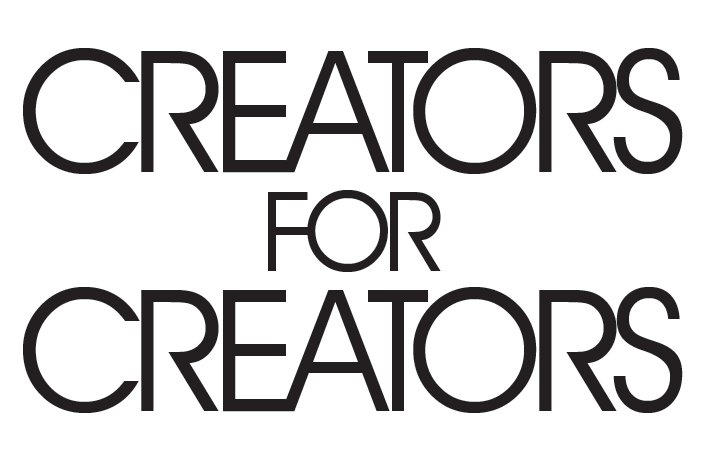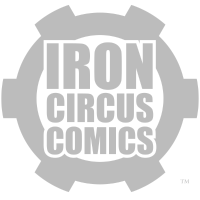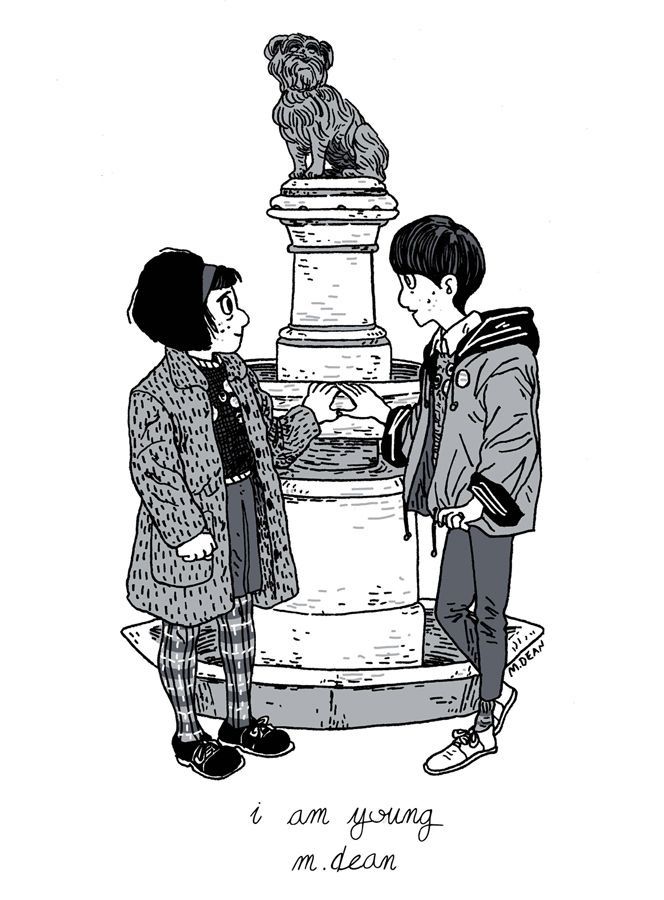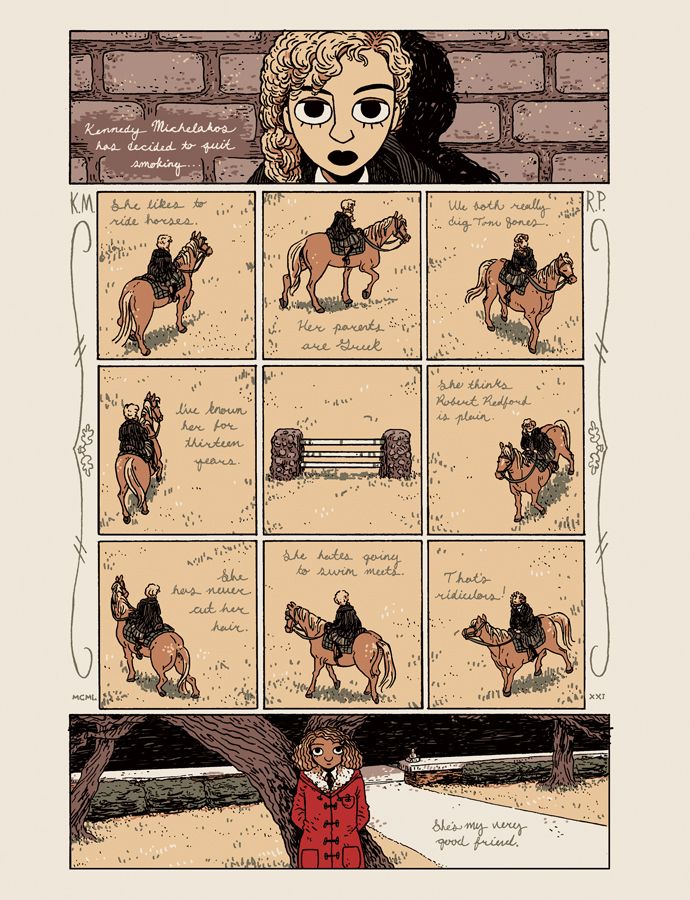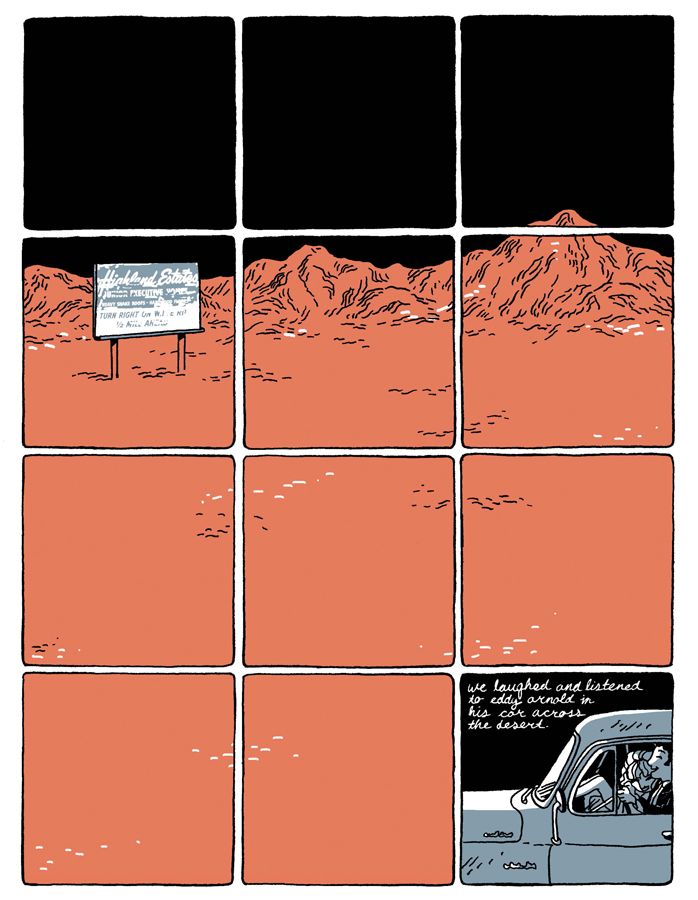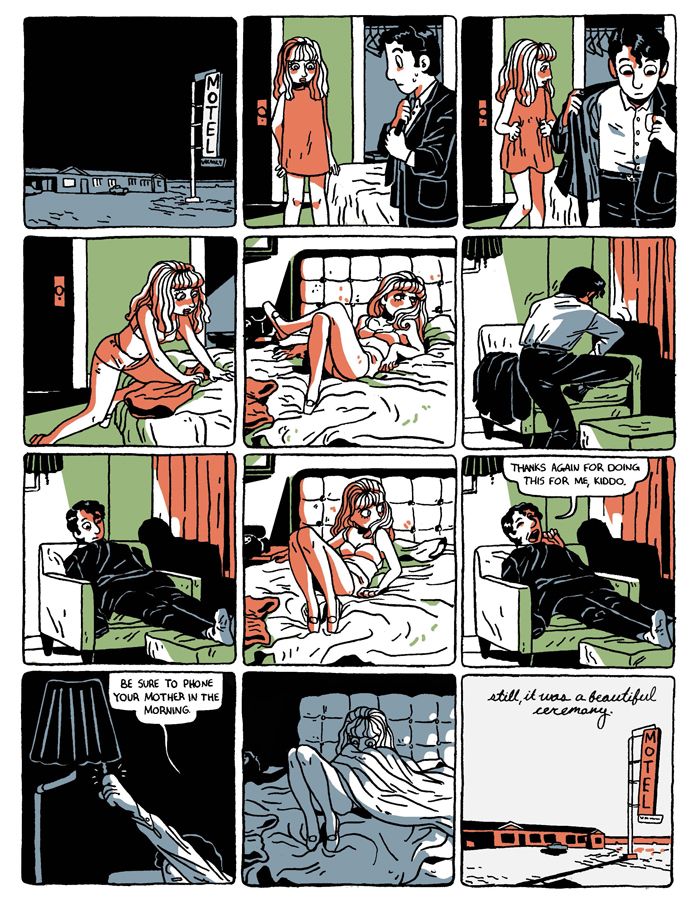As part of 2016's Image Expo event held as part of Emerald City Comicon, "East of West" artist Nick Dragotta joined several of his fellow Image Comics contemporaries to announce the creation of a new grant called "Creators for Creators." Set up by Dragotta and several other writers and artists including C. Spike Trotman, Emma Rios, Brandon Graham and Image's brand manager David Brothers, the grant would award a single award of $33,000 to the winning submission, alongside the promise of a year of mentorship to help the recipient bring their comic to life.
One year later, and the team has announced that the inaugural recipient of the grant was M. Dean, best known previously for her webcomic "The Girl Who Flew Away." She won on the strength of her submission for a new comic called "I Am Young," a series of short interconnected stories which look at the nature of time and personal growth, and personal development.
With Dean now set to work on bringing her proposed comic to life, CBR spoke to her about the nature of the project and how the grant will help her make her story real, as well as with founders David Brothers and Nick Dragotta about the Creators for Creators concept as a whole, and where they plan to take it across the course of the next year.
CBR: Nick, David -- how did "Creators for Creators" first come together? When did the idea of a grant go from being an aspiration to becoming a reality?
Nick Dragotta: When I was coming up in comics there was a grant called the Xeric started by Peter Laird of "The Teenage Mutant Ninja Turtles." I can remember trying to get one back in the late '90s. I didn’t receive one, but the 15 or so submission pages I drew for the Xeric Grant led to my first comic job at Marvel. It was a very useful experience, and that opportunity led to another.
Cut to 2015, Image was still in the Bay Area where I live, and David and I would occasionally hang out, grab lunch. Our conversations would stray into the business of comics and how it could be improved, it just started formulating from there. We really just jumped in. We wrote a letter to our peers, and with Eric Stephenson’s blessing, sent it out. The idea was to set up a nonprofit that would be funded and run by creators. No one owns it, a volunteer entity that helps promote new and original works.
Immediately we started getting replies back that would become the founders of this grant: Charlie Adlard, Jordie Bellaire, Kelly Sue DeConnick, Leila del Duca, Matt Fraction, Kieron Gillen, Jonathan Hickman, Joe Keatinge, Robert Kirkman, Jamie McKelvie, Rick Remender, Declan Shalvey, Fiona Staples, Eric Stephenson, C. Spike Trotman and Brian K. Vaughan. They were into it and made commitments to fund it in the first year.
From there we hired a great lawyer and she gave us a real education about non-profits and the legalities of running one. We got our 501c3 status and announced at Image Expo in April of 2016. It’s a work in progress, but the goal is to provide creators with a firm foundation in the creative, business, legal and financial areas of the comic business. Also the $30K.
David Brothers: Nick covered it, really. I think that if you sit around with comics pros long enough, the conversation naturally turns to saving, fixing, or breaking the industry, no matter what the original topic was.
I'm not a creator, even though I've been in and around comics for a long while now, and was really thinking about how to better distribution, logistics, all the non-creative stuff like that, and specifically for an indie creator -- the people who sell books at Gumroad or SPX. I think Nick had the original idea of a grant, and we massaged it into shape from there.
It's cool that the grant is a reality now, but we still have to stick the landing. Year One of any project is always going to be a learning experience, as you figure out the best processes, make mistakes, repair those mistakes, and incorporate better ideas than your original ones into the mix. Year Two, I think, is when it'll really be a reality!
How important has Image Comics' involvement in the project been towards making the grant real?
Dragotta: It was very important. The grant is primarily funded by Image creators. I can’t stress enough what Image offers this industry. Creating original works and owning them is incredibly empowering. We can shape this industry ourselves, not have standards dictated to us. Comics has given me so much, and I think this grant represents us giving a little back. I will forever be in debt to the creators and people that started and make Image Comics what it is today.
Brothers: Very important, just as Nick said. So many things in life come down to who you know, and being at Image has introduced me to a lot of people who have ended up trusting me and/or what I do. The backing from some of the biggest names in comics, getting to announce the grant on the Image Expo stage, all of that was amazing and gave us a good start.
But one thing I do want to stress is that even though Image is involved, this isn't an "Image Comics grant" or anything like that. I've seen it referred to as that online and heard it in person, and it's important to correct that point. As a non-profit, we're independent, so any publisher that works in truly creator-owned comics is welcome to join the team.
In addition to knowing a lot of Image creators, I've been friendly with Spike Trotman of Iron Circus for a while. She was the first person I went to with the idea after Nick and I had the original skeleton of it, and if she'd said it was dumb or not good enough, I would've bailed or gone back to the drawing board. No joke. But she met me with full enthusiasm, so I knew we were on the right track. That continued through to the actual nitty-gritty of figuring out how the grant would work.
Spike's great. Comics is blessed to have her and doesn't even know it.
Dragotta: Like David said, this is not an Image Grant or Iron Circus Comics Grant. These two publishers have decided to support the grant by offering to publish (and with that mentor) the recipient's book if they choose to. That’s a very important point to make. Other publishers are welcome to join up, but the publishing deal must be 100 percent creator owned, all media rights, etc.
These are two of the publishers in comics that are leading the way in empowering creators. Each have different business models and both are successful. Having both aboard are vital to sharing different successful business models with creators. Spike for sure is an inspiration for this grant as someone that’s always done it her way. She has been disseminating this knowledge for sometime.
Once the grant was announced, what kind of submissions did you receive? Were you surprised at all by the response, or by the comics that were being pitched to you?
Brothers: I was pretty floored by the response, and I think that extends to the rest of the board, too. I don't know what my expectations were, as far as response goes. I thought we'd get a lot, but maybe... one hundred a lot? One hundred and twenty a lot? And instead, I opened the submissions inbox after the submission period closed and looked at the real number and it took me a second to recognize it as real.
In terms of genre, country of origin, subject matter, everything, I was really impressed by what people submitted. Comics have a long way to go in a variety of ways, but the stuff I saw really made me feel good about where we're heading.
Dragotta: We received about 600 submissions from all over the world. I should mention Jonathan Hickman, Brandon Graham and Emma Rios, who chaired the selection committee. I don’t want to get too into the process by which the recipient was chosen, but Jonathan, Brandon, and Emma went above and beyond in narrowing down the finalists. This was an insane task and they were amazing. Can’t thank them enough.
The submissions were really diverse in subject. Just all over. I think Brandon said it best when he said, "Going through all these just makes me want to create more comics." It’s true, it was inspiring to see all these passionate comics from all over the world. Our hope is to in time reach out to some of the runner ups and see if we can’t help give them some exposure or assistance.
What was it about M. Dean's submission which stood out to you especially?
Dragotta: M. Dean’s submission was so finished and complete in all the different aspects of doing a comic. From writing to drawing to design. For me, the biggest was the subtle moments in her storytelling. Her characters feel real and pensive and I just wanted to read more.
Brothers: There was one tiny bit I liked a lot. We posted a few pages of her work on our website, and I'm referring specifically to the two pages with 12-panel grids. The way she uses color and plays with time, particularly on the first of those pages but especially as the first transitions to the second, really struck me.
M., congratulations on being chosen as the inaugural recipient of the grant! What was it that first led you to want to submit to the Creators For Creators project?
M. Dean: Thank you! For the past couple years my main focus has been my webcomics work, but this doesn’t always satisfy all the ideas and goals I have, so I began making shorts and sold them at comics shows. I really enjoy doing my webcomics and making shorts, but it’s always been a dream since I started comics to create full, finished books, as well. When the short comics began to gather up and it became clearer how they were all connecting, it seemed like a natural step forward to take a chance on such a good opportunity. And amazingly, it seems to have worked out. What’s so appealing and generous about Creators For Creators is, not only hopefully having a finished published volume at the end, but being given the time and security to devote to creating your work.
Can you tell us a little about your background as an artist -- I believe you come from a design background, having graduated from college?
Dean: I majored in illustration in college and the kind of work I did there was more editorial or comics and story-based. Design naturally plays a big part in comics and illustration and in what I do as well, but I think I’d be discrediting a lot of very smart and talented people by saying I have much more solid design experience than that. My art exposure before college was so much about art history and fine arts (and cartoons) that, even though that is obviously not the field I work in now, design as it’s defined in college and in professional fields feels distant to me.
But college is definitely where I began to appreciate design and learn to use it much more, in the context of comics at least. In other words, I like drawing pictures over and over again, but would be useless arranging text at Condé Nast.
How does that background play into your approach to comics? Your previous work has shown you like to work within very specific structural arrangements in your storytelling, and I’m wondering how much importance you attach to the design of each page, for example?
Dean: I think all my experiences with art and education have had a great impact in what I do now in comics. Art, design, illustration, photography, film, history, comics, etc., etc. have all felt like essential building blocks in how I approach everything I do. Open-mindedness and breadth of experiences erase creative limits, which is why I like to try something new with each new project and feel like I have other creative works I can draw inspiration from.
But my goal is always to put the story first. It’s very important that the structure and design of a page not hinder that and if it helps further communicate something the story is already trying to tell, it’s golden. For example, one of the shorts for the book, "Baby Fat," deals a lot with conformity and generational repetition, so it has a simple repeated panel grid structure, often with smaller repeated grids illustrated within.
What do you find interesting about comics, personally? What excites you about the medium, and getting to tell stories within it?
Dean: There’s a lot of possibilities of communication available in comics that are both unique and still to be explored more. The expression on a character’s face and body language that feed into a key story moment, to the layout and structure of the actual panels and pages feel equally interesting to me. I didn’t actually read comics a whole lot when I was a kid and never had a lot of formal instruction in it, so even though it can seem like there are certain "rules" in it, I’ve never felt personally bound by them and have so far gotten away with doing what I want. Which is very exciting to me.
How do you plan out a project like "I Am Young"? Do you write everything out and have it planned completely from the start, or do you like to leave room to experiment; to explore various tangents?
Dean: Typically my process is all about planning ahead and having everything written out, even if I make lots of changes in scripts or through thumbnailing along the way. I feel a bit lost without a roadmap. It’s been a little different between webcomics and the shorts, and each one of those has been a little different depending on how they’re structured. "Baby Fat" was pretty scripted while "Strange Magic" went straight to the drawing stage. Often the shorts take a lot more experimenting and figuring out, but all together as a thematic unit they came about naturally and unplanned.
You tend to go into each project with an idea for what the theme; motif; message of the narrative needs to be. Is that fair to say - and if so, what do you think lies at the core of "I Am Young"?
Dean: Yes, definitely. I don’t believe in giving definable answers or solutions in my stories, but I also lose focus really easily if I don’t have a "point" I’m trying to make. Which I probably have my upbringing to blame, hah! But it feels very neat and tidy to have one central point that can tie everything together and guide the whole story and design. While each short has its own "central point," I think the title of the project itself implies what it’s about at its core -- being young, making mistakes, and forgiving ourselves as we get older.
How is the grant going to help you make this story a reality, do you think?
Dean: This grant will allow me much more time to work from home, creating comics. Which is a very lucky thing and my ideal life. I’m very committed to my projects, but in the past it’s been difficult to work on them as much as I’d like due to full-time school or work.
The money is obviously lovely, but another huge aspect of this is that you’ll have mentorship and guidance from some of the top minds in comics. Is that something you’re keen to get involved with? And have you already had any feedback about your submission?
Dean: I would like to, yes! I want to take advantage of whatever guidance this grant will offer me, whether it’s from the creative stages or the publishing stages.
2017 looks so promising to me now, I’m very excited for it if I can keep it filled with drawing comics and making art. Right now I’m available at my website, on Twitter, and Tumblr. There will probably also be a blog specifically for recording my process and progress with the grant, though I don’t have specifics on it yet.
So Nick, David: what are your future plans for Creators for Creators? With M. now working on "I Am Young" across the next year, can we expect to see future grants set up for further new projects in years to come?
Dragotta: Yes, we’ve already started raising funds for next years grant. If you are a creator who would like to join up, please do. With more creators involved the financial burden becomes less in trying to finance the grant. In the future, I’d like to see the C4C website become a hub for creators to get better insight into our industry, a place to discuss better business practices, share cool art/projects, highlight new creators, etc.
Brothers: We'd like the grant to be a yearly affair, especially now that we have our sea legs. Our next steps are figuring out the best way to turn the site into a hub for advice, as Nick mentioned, so that the Creators for Creators concept is more than just one creator getting one grant each year. I'd like it to be something that new, upcoming, or curious creators can go to and find the straight dope on a wide variety of things about comics, from craft to social issues.
For more information about Creators for Creators, head to their website. M. Dean is currently working on "I Am Young", and you can follow her progress via her website!


